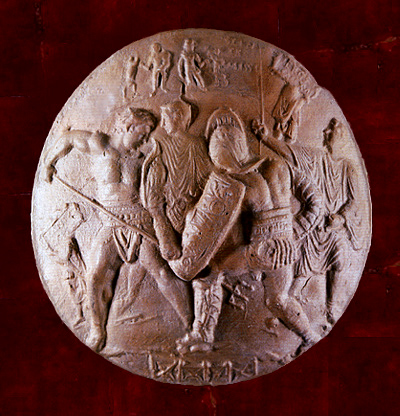Love futue-ing sucks.
We feel lucky enough to have it for a brief fleeting moment and then immediately regret it when we find ourselves flailing on the bathroom floor in a pool of our own tears, clutching our hearts and wearing headphones with crooning lovelorn songs from Andrea Botticelli in our ears. It’s god damn painful and no amount of Chunky Monkey ice cream is enough to numb the ache. Phone-calls to therapists who insist you should stop checking their social media page and bitter, passive aggressive tweets are part of the processing. Going to the gym, out with friends (and binge drinking), and plenty of questionable credit card purchases are all part of the healing. But you’re not the only person to suffer a love lost, to be destroyed by the one person you trusted above all to guard your heart. People have been getting crushed by heartbreakers since humanity invented the ability to string together words in poetry to complain and write about it. So how the hell did people in the past get over this shit before Spotify playlists were a thing?
I just really want to die.
She, crying many tears, left me
And said to me:
“Oh, how terribly we have suffered, we two,
Sappho, really I don’t want to go away.”
And I said to her this:
Go and be happy, remembering me,
For you know how we cared for you.
And if you don’t I want to remind you
…and the lovely things we felt.
Sappho, Fragment 94
The famous Latin poet Ovid might just have the answer. While romping around 1st century Rome under the reign of Emperor Augustus, Ovid made quite a name for himself with his poetry in love and heartache. One of his first works was a collection of lyrical tales about legendary heroines and their lost loves, including praise for Sappho. He wrote his own love poems for his muses and then further clarified his passions with The Art of Love. And, naturally, he began to write about the pain and healing needed afterwards when it all goes wrong in his work the Remedia Amoris or The Cure for Love. So with the help of Ovid (and me) here are some classic ways to overcome heartbreak:
"Come to my teaching, who've been deceived, you whose love has utterly betrayed you."
Don’t Suffer For It
Love, having read the name and title on this book,
said: ‘It’s war, you declare against me, I see, it’s war’.
‘Cupid, don’t condemn your poet for a crime, who has so often
raised the standard, you trusted him with, under your command.
Ovid, Part 1: Words with Cupid, and the Task
Ever feel as if you were being punished by the person you loved? As if the simple crime in having feelings is why you deserve their cruelty and to suffer the pain for it. Yeah, me too–people suck more than heartache sometimes. But remember–there is nothing wrong in loving someone. Love is a gift, always. It is not your fault and even if their words cut you deeply, left you with fresh wounds, someone unwilling to accept love has their own issues to sort out. As Ovid would say, “Let him rejoice in happiness, any eager man who loves and delights in love: let him sail with the wind…why should any lover hang from a high beam, a sad weight, with a knotted rope round his neck? Why should anyone stab himself with cold steel?” And further, “You, be content with these tears, with no guilt for death: it’s not fitting for your torch to plunge beneath greedy pyres.”
The take away? It’s their loss. Don’t lose yourself too. Love is good and it’s a blessing to have it.
Keep Busy
Let your swift mind encompass what it is that you love, and withdraw your neck from the collar that hurts you. Halt its beginnings: it’s too late for the doctor to be called, when the illness has grown stronger through delay.
Ovid, Part II: Treat it Early: Fill Your Time with War or Law
Alright, so people in the Classical Era were probably not stalking each other on Instagram, but certainly there were plenty of ‘accidental’ run-ins at the market or pleading for reconciliation through open windows. This is essentially the leave it and don’t wallow too much phase. Ovid insists that the sooner someone tries to move on the better–that the longer one puts it off, the more danger there is in prolonging the pain. “When tears are over, and the sorrowful spirit’s done, then grief can be given expression in words. …so when you’re ready for my medical arts, first ban idleness, on my advice.” He suggests that coping in gambling, drinking, and languid sleeping won’t help either–the best bet is to dedicate yourself to learning or a craft. Bettering yourself is part of the cure.
Don’t dwell too much in the agony, start immediately by loving yourself.
Get in Touch with Nature
Any care will give way to those cares. …sow the seed for your harvest, in the earth you’ve ploughed, see the branches bowed with the weight of apples, so the tree hardly bears the weight it carries. See the flowing streams with happy murmurs: see the sheep grazing on the fertile grass.
Ovid, Part III: You Can Also Farm, Hunt, or Travel
Love and loss are a part of life. Reminding yourself of your place in it is crucial. You are a human being that can think, feel, and be. You are part of this process and journey permeating in this universe and you are alive for it. Surrounding yourself with the reminder of other living things as you–things that are simply being will remind you to appreciate your ability to do the same. Also, go somewhere new, take yourself out of your comfort zone and experience a different perspective. Get out of the place you are in now to find a new you. “You only need to journey far, though strong chains hold you back, and start to travel distant ways: you’ll cry, and your lost girl’s name will oppose it, and your feet will often stop you on the road: but the less you wish to go, the more you should go: endure it, and force unwilling feet to run.”
Life is also a gift and to be a part of this process, is itself, an art. Take yourself willingly on this journey, face it with bravery, and don’t allow fear to hold you back from making the changes to take new steps forward.
Don’t Bother with Tricks
No pains will be charmed away to ease the heart, conquering love won’t be put to flight by burning sulphur.
Ovid, Part IV: But Forget Witchcraft!
Back in the day, there was plenty of rituals and sacrifices to be made to gods and spirits. Love potions, charms, you name it. They didn’t work. Today we have workshops and internet experts declaring their services to help you ‘win back your ex!’. Manipulation tactics, no-contact rules, and player’s handbooks–none of this allows for healing if you’re holding out hope and trying to play games.
Don’t do it. It’s unproductive and doesn’t help you grow.
Nobody is Perfect
She prizes others, despises my love…let all this embitter your every feeling.
Ovid, Part V: Contemplate Her Defects
Remember, they hurt you. Rejected you. Threw away your gift and stomped on your heart like you were nothing. That’s not cool, right? So why keep pretending they were this wonderful person when they treated you poorly in the end and don’t appear to care about you anymore at all? Take your care for yourself instead. Ovid seems to take it to extremes on how to deflate the idealized version of your former lover, fresh with insults and other admonishments, but I think reminding yourself of what they did is enough (and far more healthy).
Don’t hold on to someone who has shown you that they don’t deserve you.
Date Someone New
So far I’ve answered Envy: tighten the reins, more resolutely, and ride your course out, poet.
Ovid, Part VI: Now About Sex
Listen, we all know the adage “the best way to get over someone is to get under someone else.” Ovid suggests the same. In fact, he encourages many.
Do you and do everybody else too, I guess.
Don’t Let Them See You Bleed
Pretend to what is not, and that the passion’s over, so you’ll become, in truth, what you are studying to be.
Ovid, Part VIII: Be Cool With Her
Be Chill. There is nothing more unbecoming than someone ripping their heart out Indiana Jone’s Kali Ma style and shoving it in their ex-lover’s face so they know just how badly they hurt you. Listen, unless they are a psychopath or a narcissist–they likely know. And if they don’t? Go back up to the other parts where you need to remind yourself how cruel they are then and they don’t really deserve any more of your attention. “Don’t let her be too pleased with herself, nor have the power to despise you: be brave, so she gives way to your bravery.”
Take back your power and hold your head high.
Protect Yourself
Let love fail, and, vanishing, dissolve into thin air, and let it fade away in gentle stages. But it’s wrong to hate the girl you loved, in any way: that conclusion suits uncivilised natures.
Ovid, Part XI: Now, Keep Away From Her
In the process of healing, this person still has the power to hurt you. They are unsafe. More poisonous words could infect you, false hopes could set you right back to the beginning, or their indifference could result in its own unique kind of pain. Don’t hate them, don’t treat them poorly if your paths are to cross–you both shared something special with one another at one time. But be careful not to open yourself up to more pain on their behalf, especially if they still have enough influence over you to cause further harm.
Stay away until enough time has passed for full healing. Show them your scars, not your fresh wounds.
Be Healthy and Eat Well
So don’t drink at all, or drink so much your cares all vanish: if it’s anywhere between the two it’s bound to do you harm.
Ovid, Part XVI: The Doctor’s Last Advice
The best way to feel better is to feel good. Mind your diet, eat healthy foods and though Ovid doesn’t mention it, get your sad butt to the gym and make it a fab one instead. There are plenty of foods that increase dopamine and serotonin production which will surely make you feel happier. Also, limit drinking and avoid falling into the trap of numbing yourself.
Heal the heart by healing the body.
And another suggestion from me? Write blog posts. I’m sure Ovid would approve.



















